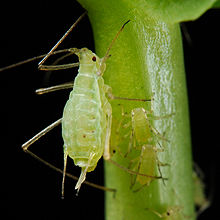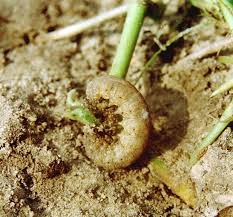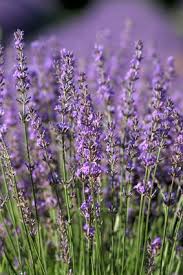Here comes Spring!
The commencement of the gardening season heralds in the influx of insects: beneficial and, unfortunately, of the “pest” nature. What are some ways we can increase the number of beneficial insects while reducing damage from unwanted pests? That’s a question gardeners have been exploring since the advent of vegetable cultivation.
While there are an incredible number of options out there for the more organic-minded gardener: natural insecticides include biological, botanical, oil, soap, and mineral applications, this may not be the preferred avenue for all of them because even organic applications can negatively affect the beneficial insect population, why not control pests naturally? Companion planting is one way to take your pest control plan to the next level. “Set the table” for all those wonderful, predacious insects by interspersing your vegetable garden with herbs.
Threefold Benefit of Growing Herbs
Complementing your vegetable garden with herbs brings a threefold benefit: you attract beneficial insects for pollination and predation, some of the more pungent herbs will naturally keep pests away, and you can eat and cook with the herbs you grow! So what herbs should you incorporate? Well, your specific pest problem will really depend on what vegetables you have growing in your garden but let’s cover a couple of the more common pests most gardeners have dealt with: aphids & cutworms.
Aphids
 In the gardening world, it’s almost common knowledge that the ladybug is the number one predator of aphids: they can munch up to 50 aphids a day! Ladybugs are actually available to purchase from many nurseries for release into your garden. Unfortunately a big problem is that most of the time they refuse to stay where you put them. So cultivating Chamomile would be a way to attract those spotted beauties to your garden. In addition, you are growing the ingredients to make a delicious and relaxing herbal tea.
In the gardening world, it’s almost common knowledge that the ladybug is the number one predator of aphids: they can munch up to 50 aphids a day! Ladybugs are actually available to purchase from many nurseries for release into your garden. Unfortunately a big problem is that most of the time they refuse to stay where you put them. So cultivating Chamomile would be a way to attract those spotted beauties to your garden. In addition, you are growing the ingredients to make a delicious and relaxing herbal tea.
Lucky for you, there are other helpful insect options who enjoy the tasty treat of a juvenile aphid. The Green Lacewing, Hover Fly, and, the small but powerful, Ichneumonid wasp are a few of the natural predators of aphids, and caraway is common kitchen herb that attracts all three of these insects. Bonus: at the end of the growing season you’ll be ready to pickle your carrots or cucumbers using your homegrown herb.
Cutworms
 A gardener usually discovers the presence of cutworms upon the morning inspection of the garden. Active at night and “hiding in plant debris waiting for the evening’s banquet,” they have been known to quickly destroy young plants. These pests can be difficult to control even with pesticides, so attracting predators can be quite advantageous.
A gardener usually discovers the presence of cutworms upon the morning inspection of the garden. Active at night and “hiding in plant debris waiting for the evening’s banquet,” they have been known to quickly destroy young plants. These pests can be difficult to control even with pesticides, so attracting predators can be quite advantageous.
The Tachinid fly and parasitoid wasps are a great ally in the battle against cutworms in your vegetable garden, you can turn to coriander or dill in this case. The bonus with dill is that it not only attracts predacious insects, but because of its pungent smell, it can act as a deterrent for a variety of pests.
Aromatic Herbs Ward Off Pests
Which leads me to my last suggestion – plant highly aromatic herbs to “confuse” the pests and keep them away from your cherished vegetables. Herbs like dill, garlic, basil, lavender, and sage will add interest to your garden and provide that aroma to keep those pests at bay. Mint is another great aromatic and a delicious addition to your herbal selection, however, it grows prolifically; you may want to keep it in a container so it doesn’t overrun your garden beds. Get creative and go integrate some herbs into your vegetable garden plan this year to help decrease your pest problem, improve pollination, and add interest to your culinary adventures.
Mint is another great aromatic and a delicious addition to your herbal selection, however, it grows prolifically; you may want to keep it in a container so it doesn’t overrun your garden beds. Get creative and go integrate some herbs into your vegetable garden plan this year to help decrease your pest problem, improve pollination, and add interest to your culinary adventures.




Leave a Reply
You must be logged in to post a comment.